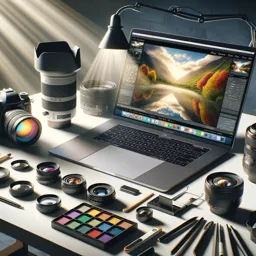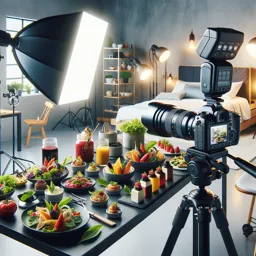Introduction
Wedding photography is a beautiful fusion of artistry, technical expertise, and careful planning. For both budding and experienced photographers, ensuring that you have all the right equipment can make a world of difference when it comes to capturing a couple’s special day. This article provides a comprehensive equipment checklist designed for wedding photographers aiming for flawless results under any circumstance.
Camera Bodies
It’s crucial to have at least two camera bodies—one as your main camera and the other as a backup. Weddings are fast-paced, and equipment failure isn’t an option. Choose cameras with reliable autofocus, quick frame rates, and excellent performance in low-light conditions.
Lenses
- Wide-Angle Lens (24mm or 35mm): Perfect for group shots and scenes capturing the venue atmosphere.
- Mid-Range Zoom (24-70mm): Offers flexibility to quickly adapt to changing moments.
- Telephoto Lens (70-200mm): Ideal for candid shots from a distance without intruding on intimate moments.
- Prime Lens (50mm or 85mm): Favoured for portraits due to sharpness and gorgeous background blur.
Lighting Gear
- External Flash: Essential for indoor and low-light conditions where natural light isn’t sufficient.
- Light Modifiers: Diffusers, softboxes, and reflectors help control and soften your light source.
- Extra Batteries: Always carry more than you think you’ll need for both your flashes and camera bodies.
Memory and Storage
- Carry high-capacity, high-speed memory cards to capture hundreds of high-resolution images without hesitation.
- Have a portable hard drive or cloud storage system for on-site backup, just in case cards fail or are misplaced.
Essential Accessories
- Tripod: Useful for formal portraits and shots requiring extra stability, particularly in low light.
- Camera Bag: Invest in a sturdy, comfortable bag to house your gear securely and accessibly throughout the day.
- Lens Cleaning Kit: Weddings can be messy! Keeping your lenses clean is essential for crisp photos.
- Business Cards: Opportunities for new clients often arise at weddings—be ready to network on the go.
Preparation Tips
No amount of equipment will compensate for lack of preparation. Charge all batteries in advance, clean your gear, check your storage solutions, and make a list to double-check on the wedding day. Talk with the couple about their expectations and specific requests, and visit the venue ahead of time to scout the best locations for natural light and creative compositions.
Conclusion
A wedding is a once-in-a-lifetime event, and stellar photographs help preserve these cherished memories forever. By assembling the right gear and supplementing it with good preparation, you’ll be powered to create stunning imagery your clients will treasure for years to come.































